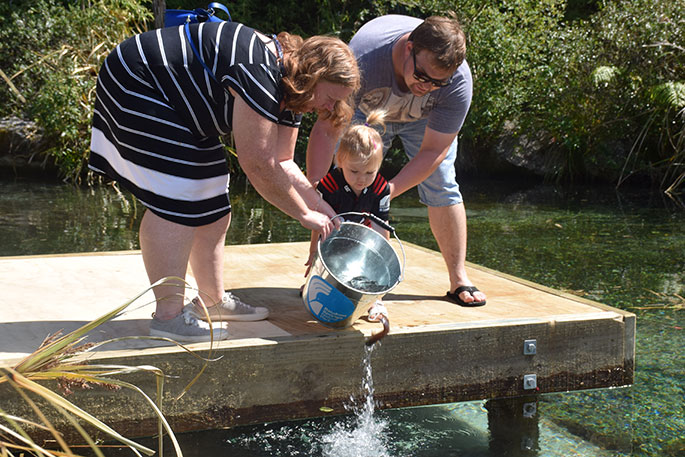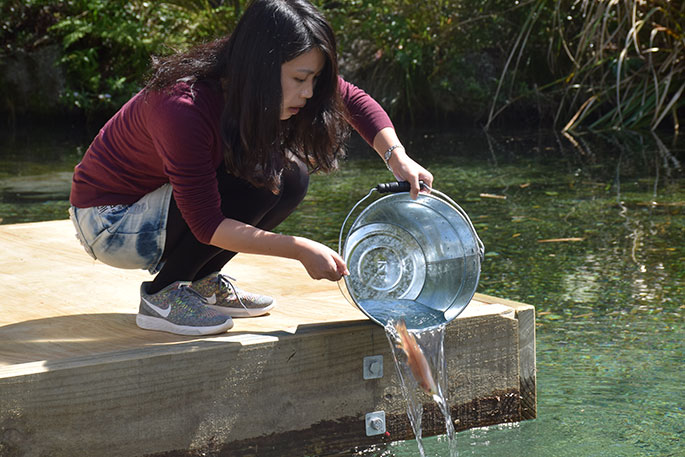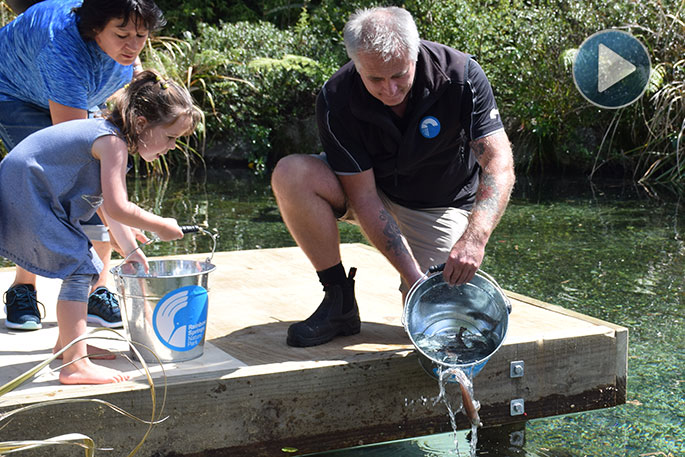Ngāi Tahu Tourism owned Rainbow Springs are thrilled to welcome several hundred giant kōkopu (galaxias argenteus) into the park in Rotorua.
Giant kōkopu are the largest adult fish of New Zealand's iconic ‘whitebait' species, endemic to New Zealand and classified as endangered.
Children who were visiting the park were given the rare opportunity to help transfer the giant kōkopu from their travel container into the Rainbow Springs pool using buckets.
The giant kōkopu were donated to Rainbow Springs as part of New Zealand Premium Whitebait (NZPW) ‘Fish Ark' project.
NZPW reproduces, hatches and grows whitebait in their Warkworth fish hatchery (the only native whitebait fish hatchery of its kind in New Zealand).
As part of the NZPW
commercial whitebait business they release some of their production into pools or restored habitats around New Zealand.

The several hundred giant kōkopu that arrived on Thursday are the first batch of a shipment of around 2000 two year old giant kōkopu that will be transferred to Rainbow Springs over the next month, making it presumed to be one of the largest moves of adult endemic species in crisis in New Zealand's history.
Rainbow Springs' Business Manager David Hennigan explained that projects like this are vital for the future of New Zealand's endangered species.
'We saw it as another opportunity to do what we can for the native species of New Zealand. This country has lost so much already and too many species found nowhere else in the world are still in danger of extinction.”
'We've now removed an introduced species out of oneof our pools and introduced an endemic and endangered one instead. It's wonderful, we're reversing the cycle," says Wildlife Program Manager Mark Paterson.
Paul Decker, Manager, New Zealand Premium Whitebait, explained that whitebait have undergone significant population declines since European settlement.
'The biggest threat to this species is the loss and degradation of habitat through activities such as drainage of wetlands and straightening of river channel systems.”
'Around 85 per cent to 90 per cent of New Zealand's wetlands have been lost in the last 100 years and this species is now essentially absent from most of New Zealand's intensively utilised lowland plains.
"It's predicted that the population will continue to decline unless we intervene.”
Giant kōkopu are slow growing, they can live in excess of twenty years and weigh as much as three kilograms.




0 comments
Leave a Comment
You must be logged in to make a comment.